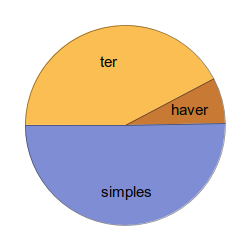The good thing about the simple pluperfet, pretérito mais-que-perfeito, and the normal pluperfect, mais-que-perfeito composto from the learner's point of view is that they mean the same.
The simple pluperfect is hardly ever used in informal speech. Some people may even not feel confident in using it. And the normal pluperfect can be used even in formal language. The simple pluperfect is most common in literature.
Perhaps the most common use of the mais-que-perfeito simples in common speech is in three idiomatic expressions, where in fact it is not used as mais-que-perfeito at all: pudera, quem me dera, and tomara (eu), tomaras tu, tomáramos nós, etc. Credit to Artefacto who thought about it first.
Pudera is an interjection meaning it couldn’t be otherwise! What else would you expect?!
“O Pedro foi despedido.” ─ “Pudera! O patrão apanhou-o a roubar dinheiro da caixa.” (“Pedro was sacked.” – “Pudera! The boss caught him stealing from the till.”)
Quem me dera means I wish, I’d love (something that’s not going to happen):
Quem me dera ter um cão! Mas vivo num apartamento pequeno e teria que o deixar sozinho o dia todo. (I’d love to have a dog! But I live in a small flat, and would have to leave it alone all day.)
Quem me dera ser um pássaro! (I wish I were a bird!)
Lastly, tomara is an interjection meaning I hope, I wish, I’d love, I'll be happy if:
Vamos fazer um picnic amanhã. Tomara que não chova. (We're going to have a picnic tomorrow. I hope it won't rain.)
"O teu ex-namorado disse que iria chegar tarde." ─ "Tomara eu que ele não viesse de todo." (Your ex-boyfriend said he would be late." "I'd be happy if he didn't turn up at all.")
Now, why do people use the compound pusperfect rather than the simple one. I don't know that, but iIn fact the compound pluperfect is easier. You only have to know the past participle of the main verb (the one you want to conjugate), and you have to know it anyway for other things, and the verb ter. You can also use the verb haver instead of ter as auxiliary: ela havia cozinhado, tu havias feito. It is fairly rare though.
There is also a little issue with the simple pluperfect: in the third person plural it is the same as the simple past, pretérito perfeito, which could possibly be confusing. Compare:
Eles encontraram-me ontem, e contaram-me que te tinham encontrado no dia anterior.
Eles encontraram-me ontem, e contaram-me que te encontraram no dia anterior.
The two sentences mean the same, but in the sencond you have the same word, encontraram, to convey different tenses for the same person. It does not lead to confusion in this case, but it migh be ambiguous in others.
